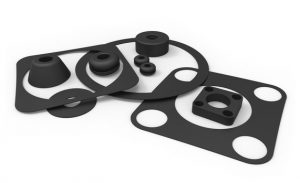
Have you heard of technopolymers? Based on the name alone, you may assume that they are plastics. Polymers are typically plastics that are characterized by linked chains of chemical molecules. Technopolymers, however, aren’t ordinary plastics. They are a special type of plastics with their own unique features and purposes. To learn more about technopolymers, including what they are used for, keep reading.
Overview of Technopolymers
Technopolymers are advanced plastics with superior properties when compared to traditional plastics. They are designed to withstand extreme heat and mechanical stress. Traditional plastics, of course, are susceptible to damage when exposed to heat. Heat exposure can cause traditional plastics to melt, resulting in damage and deformation. Technopolymers can withstand both heat and mechanical stress, making them an attractive alternative to traditional plastics.
Some of the most common types of technopolymers include the following:
- Polymide
- Acetyl
- Polypropylene
- Polycarbonate
- Polyester resin
Applications for Technopolymers
What are technopolymers used for exactly? In the manufacturing industry, they are used in dozens of parts and components. You can find gaskets made of technopolymers, for instance. The heat-resistant properties of technopolymers allow them to create a strong seal in environments where hot liquid or hot gas is present.
Technopolymers are also used in gears. Some gears are made of metals or alloys, whereas others are made of technopolymers. Technopolymers offer several advantages over traditional metals and alloys. As previously mentioned, they are resistant to heat and mechanical stress. Many of them can withstand more heat and stress than traditional metals and alloys. Technopolymers are also lightweight. They typically weigh less than traditional metals and alloys.
Fiberglass is oftentimes used in conjunction with technopolymers. Technopolymers can be mixed with fiberglass to increase their strength and durability. Even without fiberglass, however, technopolymers are incredibly strong. They are stronger, as well as lighter, than most other plastics. Fiberglass simply increases their strength and durability. With fiberglass, technopolymers feature small strands of glass that essentially reinforce their polymer compounds.
In Conclusion
Not all plastics are the same. Standard plastic is relatively weak and offers little or no protection against heat and mechanical stress. Technopolymers, though, offer a solution. Technopolymers may look like standard plastic, but they exhibit advanced properties that make them a superior choice for many manufacturing-related applications. They are highly resistant to heat and mechanical stress, and they are lightweight.
